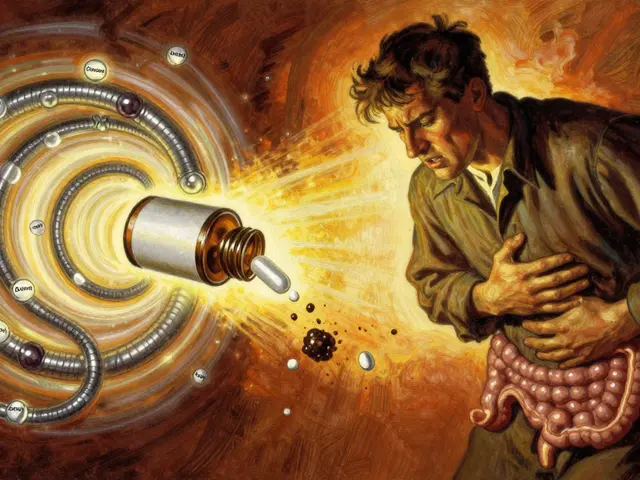Levothroid: What It Is, How to Use It, and What to Watch For
If you’ve been prescribed Levothroid, you likely have an underactive thyroid (hypothyroidism). Levothroid is a brand name for levothyroxine, a synthetic form of the thyroid hormone T4. The goal is to bring your hormone levels back to normal so you feel energetic, keep a steady weight, and avoid long‑term health problems.
Think of it like fixing a thermostat that’s set too low. Your body’s metabolism runs on the hormone level, and Levothroid raises it to the right setting. Most people notice improvement within a few weeks, but the exact timing depends on how low your hormones were and how your body responds.
How LevothROID Works
Levothroid replaces the missing T4 hormone. Your liver then converts T4 into the active T3 form that cells use for energy. By giving your body a steady supply of T4, Levothroid helps normalize heart rate, body temperature, and cholesterol levels.
Because the drug works system‑wide, you’ll want to take it exactly as your doctor tells you. Even small changes in dose can shift your hormone balance, so consistency matters.
Dosage and How to Take It
Typical starting doses range from 25 µg to 100 µg per day, depending on age, weight, and how low your thyroid levels are. Doctors often start low and adjust every 4‑6 weeks based on blood tests (TSH, free T4). The goal is a TSH in the target range, usually 0.4‑4.0 mIU/L.
Take Levothroid on an empty stomach, preferably first thing in the morning, with a full glass of water. Wait at least 30‑60 minutes before eating breakfast, coffee, or any supplement. Calcium, iron, and some antacids can block absorption, so keep those separate.
If you miss a dose, take it as soon as you remember—unless it’s almost time for your next dose. In that case, skip the missed one and continue with your regular schedule. Don’t double up.
Common Side Effects & When to Call the Doctor
Most people tolerate Levothroid well, but a few experience symptoms if the dose is too high or too low. Watch for:
- Rapid heartbeat or palpitations
- Feeling shaky or anxious
- Sleep problems
- Weight loss or appetite changes
- Heat intolerance or sweating
If any of these become intense or you develop chest pain, shortness of breath, or severe headache, seek medical help right away. Those could signal an overdose.
Drug Interactions to Keep in Mind
Levothroid can mix with many meds, but a few are worth noting:
- Antacids containing aluminum or magnesium
- Calcium carbonate or calcium citrate
- Iron supplements
- Certain cholesterol‑lowering drugs (e.g., cholestyramine)
- Blood thinners like warfarin (thyroid changes can affect clotting)
Always tell your doctor about over‑the‑counter meds, supplements, and herbal products. A quick chat can prevent absorption problems.
Monitoring and Follow‑Up
After starting Levothroid, your doctor will check blood work about 6‑8 weeks later. That’s when the dose gets fine‑tuned. Once you’re stable, tests are usually done every 6‑12 months.
Keep a log of any symptoms—both good and bad. It helps your doctor see how the dose is working and whether any adjustments are needed.
Quick FAQ
Can I take Levothroid with food? Yes, but food reduces absorption. It’s best on an empty stomach.
Is Levothroid safe during pregnancy? Proper thyroid control is crucial in pregnancy, and Levothroid is commonly used. Your doctor will set the right dose.
Will I need the medication forever? Most people with hypothyroidism need lifelong therapy, but your doctor will review your situation regularly.
Levothroid can feel like a simple pill, but getting the dose right makes all the difference. Follow the dosing schedule, keep your labs on track, and talk to your provider about any new symptoms. With the right approach, you’ll keep your thyroid in the sweet spot and feel your best.

Levothroid (Levothyroxine): Uses, Dosage, Side Effects, and 2025 Availability
Clear, 2025-ready guide to Levothroid: what it is, why it’s hard to find, how levothyroxine works, safe dosing, side effects, switching brands, and NZ-specific tips.
Aug 22 2025




